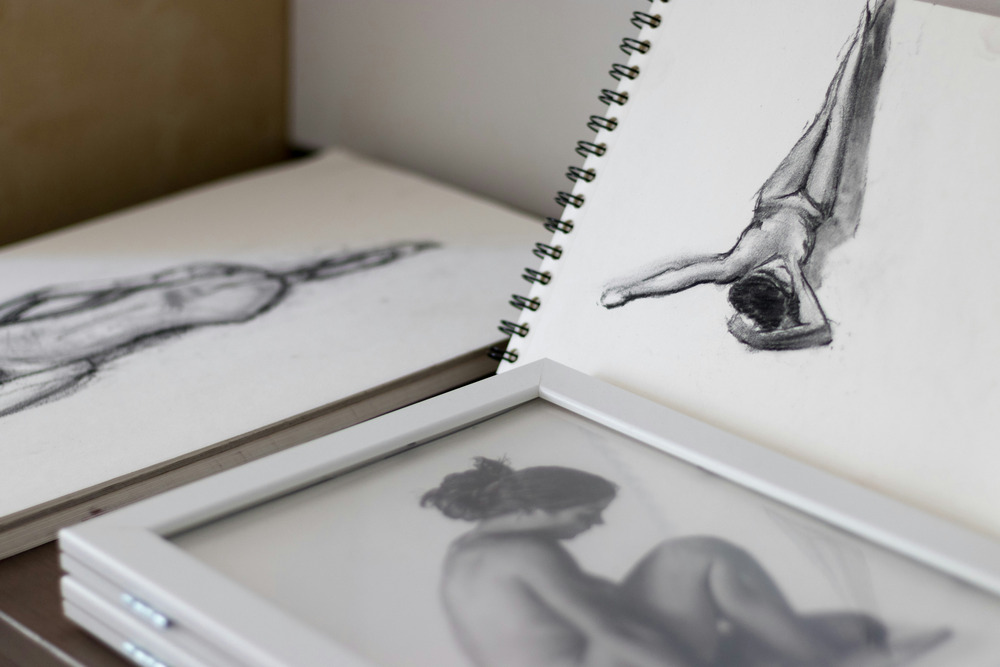Craft
What Women Can Learn From Reading Sexist Male Writers

The other night, a fellow novelist leaned over and confessed to me, in the hushed tones of one confessing to a murder, that she liked Jonathan Franzen. Liked his books, that is. She eyed me nervously and braced herself for the feminist smackdown that, she feared, I was about to unleash.
Instead I laughed and said, “Don’t worry, it’s okay — I like him, too!” She smiled with relief. Professing your love for Franzen’s books — even if you simultaneously acknowledge his personal shortcomings re: Jennifer Weiner interactions, baffling bird obsessions, anti-technology curmudgeonliness — feels like a risky move these days. Especially in progressive literary Brooklyn.
Then she told me how, after reading The Corrections, she posted a status on Facebook calling the book a masterpiece. She wanted to push back against all the criticism of Franzen’s supposed sexism, even though she worried that female friends might ostracize her for it. “I know this sounds silly,” she recounted, “but doing that felt like a brave act — like political activism.”
Her story confirmed something I’ve been suspecting for a long time: We’ve created a literary climate where women are scared to admit that they enjoy a male writer’s work, because some other women have accused him of sexism.
I’d already heard stories along these lines from friends who’d been castigated for reading Philip Roth. But Franzen? Franzen, whose character Denise’s storyline in The Corrections is among the best depictions I’ve encountered of queer female desire? Whose first 50 pages in Freedom form one of the strongest indictments of rape culture I’ve ever read? When he has “woman trouble,” I can’t help thinking that our liberal bubble has become so ideologically rigid that we’ve stiffened into a profoundly illiberal stance.
Take feminist writer Rebecca Solnit, who recently published a piece in Literary Hub titled “80 Books No Woman Should Read.” Solnit suggests with some self-aware hyperbole that, as a woman, I should swear off reading a slew of male authors, from Ernest Hemingway to Charles Bukowski to Henry Miller to, yes, Franzen. She places a bunch of literary heavy-hitters in her “no-read zone” because “some books are instructions on why women are dirt or hardly exist at all except as accessories or are inherently evil and empty.”
To be fair, Solnit is riffing off the Esquire list “80 Best Books Every Man Should Read,” which really is terrible. She foregrounds her piece by saying “of course I believe everyone should read anything they want.” Her tone is tongue-in-cheek; she’s clearly presenting a rhetorical construct. Still, she’s using that construct to make a real argument about not reading sexist writers, and it’s an argument with which I wholeheartedly disagree, on feminist grounds.
First off, you can read an author, judge him sexist, and still learn something valuable about the human condition from his book. It’s pretty insulting to women’s intelligence to imply that we’re incapable of separating out the good from the bad in these works. I’ve read Bukowski and Miller and have had no trouble taking the wheat and leaving the chaff. I suspect most women are the same way. We almost can’t help but become experts in this sort of literary winnowing, precisely because 99% of the books humanity has thrown at us contain that chaff.
This is especially true for those of us with multiple marginalities. I am a queer, non-white, Jewish young woman. If I had to excise from my library every book whose writer was homophobic, racist, anti-Semitic and/or misogynist, my shelves would be pretty much empty. Everything from the Bible to Heidegger would land in the trash. Hell, I’d even have to toss out a writer Solnit admires, F. Scott Fitzgerald — remember Meyer Wolfsheim, the Jewish gangster who stalks the pages of The Great Gatsby wearing cufflinks made from human teeth?
But I haven’t thrown out these books, because I actually believe that we women have something to gain from reading sexist male writers.
Genuinely sexist works can give us insight into the history and logic of sexism. That’s important, because you can’t defeat something without first understanding what it is you’re fighting. Plus, these books help us understand the forces that shaped women of a certain time and place. Reading Miller gives me a window onto the sorts of attitudes his lover, Anais Nin, had to contend with — and also sheds light on the flaws in her own writing (see under: gender essentialism).
If reading sexist male writers is recommended for women readers, it’s downright compulsory for women writers. We need to be intimately aware of that language, need to speak it backward and forward, so that we can make our own books relevant and, ideally, cleverly subversive to boot. If I hadn’t spent years growing up in the Orthodox Jewish world and becoming fluent in that religion’s deeply misogynistic ancient texts, I’d never have been able to turn the misogyny on its head by having my female protagonist best her dad at Kabbalah in my novel, The Mystics of Mile End.
Adelle Waldman, author of The Love Affairs of Nathaniel P., has told audiences that she was able to channel her sexist male protagonist’s voice in part because she’s read so many books by sexist male writers. (Incidentally, she likes Roth and Franzen.) She subverts her character’s sexism by revealing it subtly, page by page, allowing him to incriminate himself and the male literary establishment he represents.
Waldman has also pointed out in interviews that “there are things that men can’t say in their novels because they would be accused of misogyny, but I can say them.” That raises a worrisome question: Do we give women more latitude when it comes to writing sexism, offering them the benefit of the doubt even as we jump to excoriate men, who often get conflated with their male characters? And if so, isn’t that the opposite of progressive?
Which brings me to another reason for reading male writers accused of sexism: Sometimes they’re not really sexist — they’re actually in on the joke.
Junot Díaz is a case in point. When his collection This Is How You Lose Her came out in 2012, many accused him of sexism because his young Dominican narrator, Yunior, spewed it on nearly every page. But others leapt to Díaz’s defense, arguing that the author is trusting us, the readers, to deconstruct the sexism of the text as we read. And that may just be profoundly feminist of him.
I’m in the camp of those who read Díaz sympathetically — I actually believe he did a brilliant job of revealing and critiquing sexism, without being didactic — but I still think it’s valid when people argue that, no, he only revealed sexism, he didn’t properly critique it. What’s not valid is when people hear that so-and-so author is sexist and, without so much as reading a page, ship him off to this indefensible place, “the no-read zone.”









